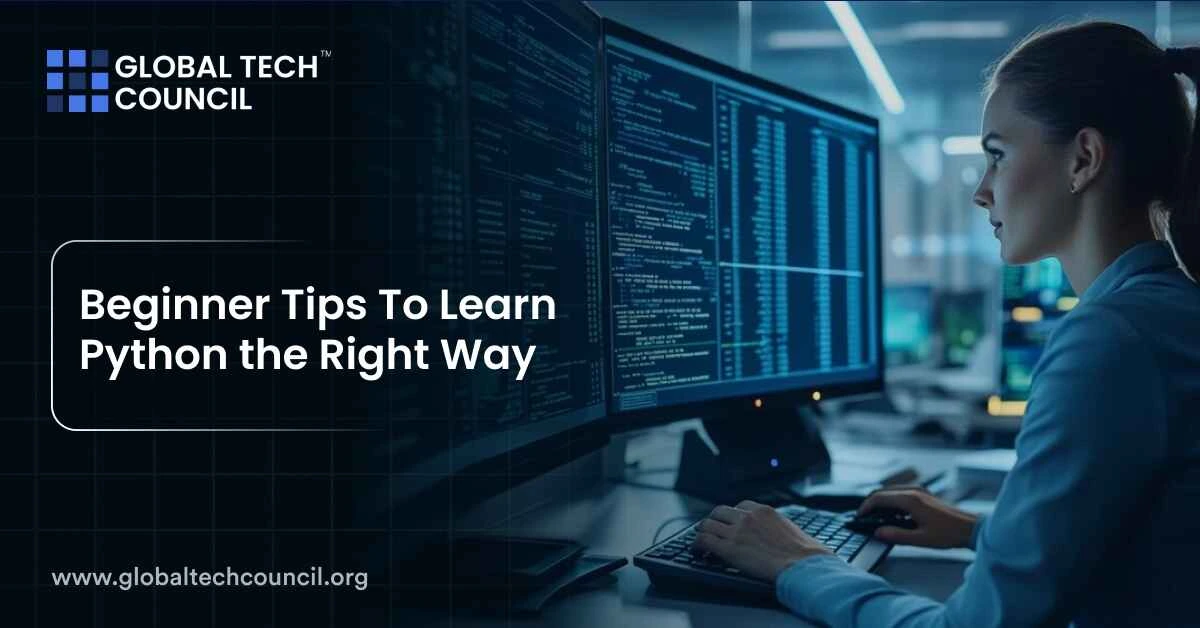
Python is an important programming language that every developer must have at his fingertips. Many programmers make use of Python to create learning algorithms, build websites, and perform other significant tasks. For a beginner, learning Python can be intimidating due to its generic nature and the high level of syntax one needs to understand and learn properly before mastering the language. Though experienced programmers will often throw snippets and assure you that the Python programming language is really easy to learn, Python can be incredibly confusing for a beginner. This is because it is very important to understand the building blocks of the Python language and figure out the techniques used to write a code to create a view using the Python language.
But what you need to keep in mind is that ‘Nothing is impossible!’ Even if you are a beginner with zero experience in the Python programming language, hard work and dedication from your side will help you achieve your goal of learning Python. In this article, I will provide you with a few sure shot tips that you can apply to master the art of coding using Python.
Beginner Tips: Learning Python the right way
Whenever it comes to learning anything in life, it is important to choose the right way and not the shortcuts, as learning things in the right manner is what will take you a long way.
Here a few tips to learn Python in a simple manner.
1. Coding Everyday
Consistency is of the utmost importance when it comes to learning any new language. You must make a commitment to yourself to code every day. Though it may be hard to believe, muscle memory plays a vital role in programming and committing yourself to code every day will help you improve muscle memory to a great extent.
2. Write Down What You Learn
While progressing on your journey as a new programmer, you may wonder if taking notes is a necessary aspect. But the fact is, Yes, it absolutely is! As per research reports, taking notes by hand helps in long-term concept retention. This will be highly beneficial, especially if you are looking to become a full-time developer, as many interviews will require you to write down codes on a whiteboard. When you start working on small projects and programs, writing by hand will help you to plan your code before moving it to the computer. This will help you save a lot of time and will help you write down the functions and classes you need.
3. Become a Bug Bounty Hunter
Hitting a bug is inevitable once you start writing programs you will run into bugs in your code. This happens to everyone. You must never get frustrated by bugs. These moments must, in fact, be enhanced with pride and you just picture yourself as a bug bounty hunter. It is important to follow a methodological approach while debugging, to help you find out where things are breaking down. An ideal way to achieve this is by going through your code in the order in which it is executed and make sure that each part functions properly. After you get a fair idea of where things are breaking down, you can use a Python debugger. Python’s built-in debugger is called pdb. This debugger will drop you into the interactive mode. It will open up an application in a certain spot and let you have a look at the variables and see what you want to see.
4. Take Breaks
While learning, it is highly important to step away and absorb the concepts. You can use the Pomodoro technique. It is a widely used technique that can help you. It refers to working for twenty-five minutes, taking a short break, and then repeating the process. It is critical to take breaks to have an effective study session, particularly when it involves taking in a lot of new information. If you hit a bug and are not able to figure out what is going wrong, take a break. Step away from the computer and relax by taking a walk, chatting with a friend, or listening to melodious music. In programming, you must make sure that your code follows the rules of a language and logic exactly. Hence, missing even a question mark will affect everything. Taking a break and coming back with fresh eyes and a fresh mind will make a huge difference.
5. Indulge in Pair Programming
Pair programming refers to a technique that involves two developers who work at one workstation to complete a task. The two developers will switch between being the navigator and the driver. The driver is the one who writes the code, and the navigator is the one who reviews the code once it is written and guides problem-solving. You must frequently switch to get the benefit of both sides. Pair programming offers many benefits. It exposes you to multiple ideas and ways of thinking that will aid in problem-solving once you start coding on your own. Apart from having someone review your code, it also allows you to see how someone else thinks about a problem.
Conclusion
Now that you have learned the tips and strategies to learn Python go ahead and start your journey with the Python programming language. To know more about Python certifications and become a Python expert, check out Global Tech Council.
Leave a Reply